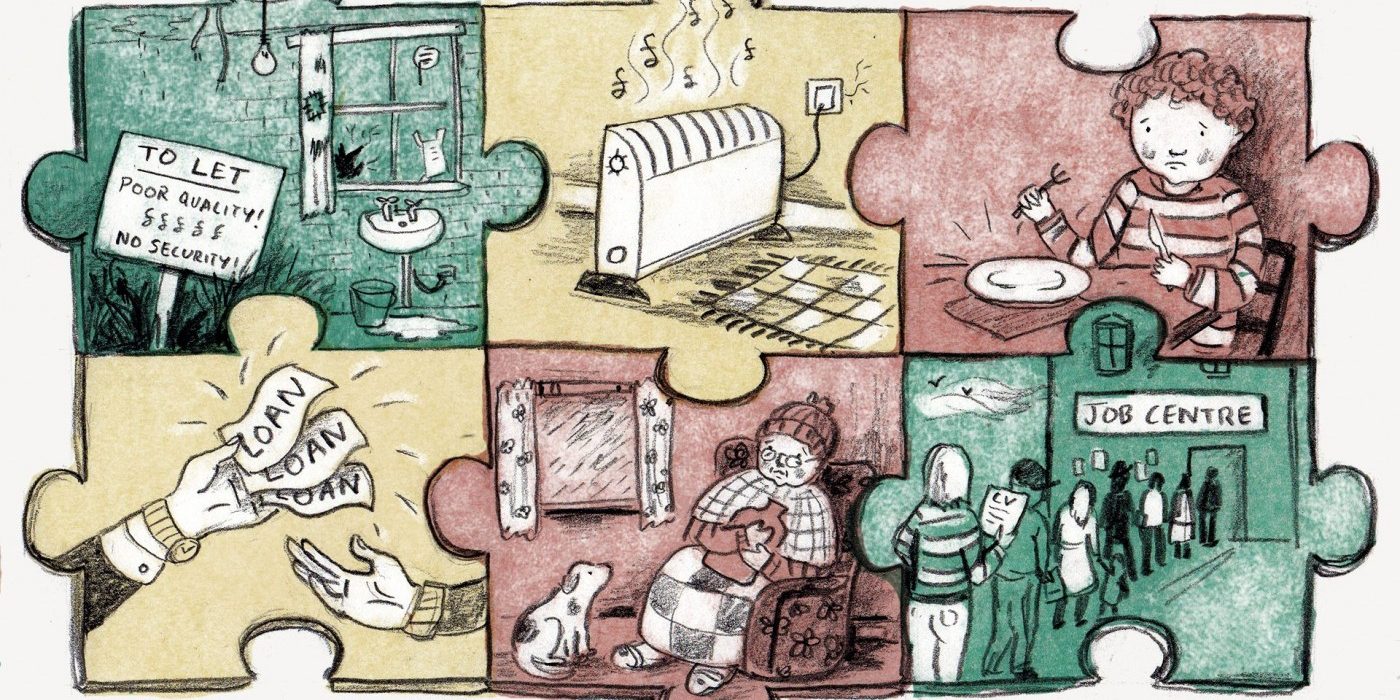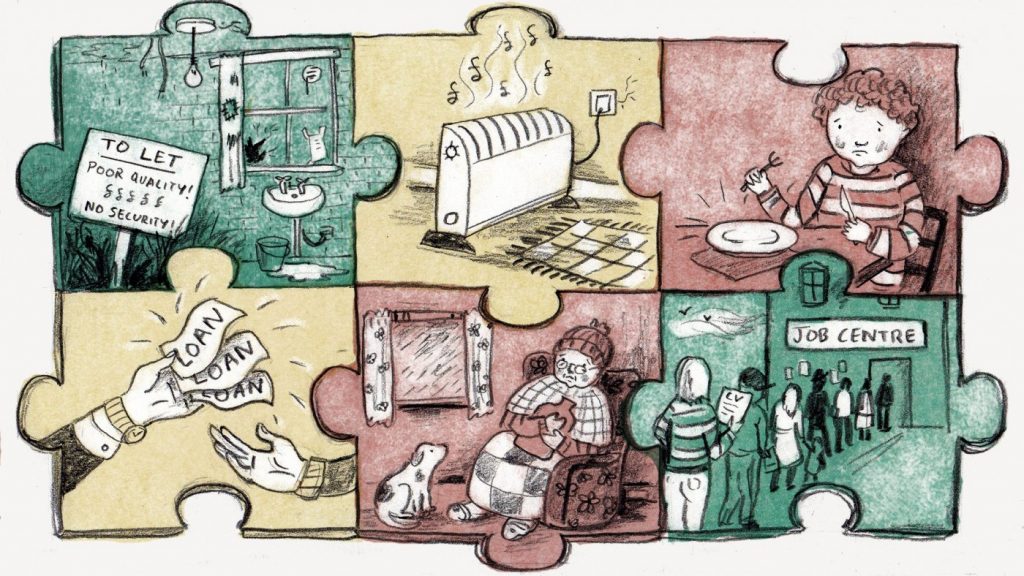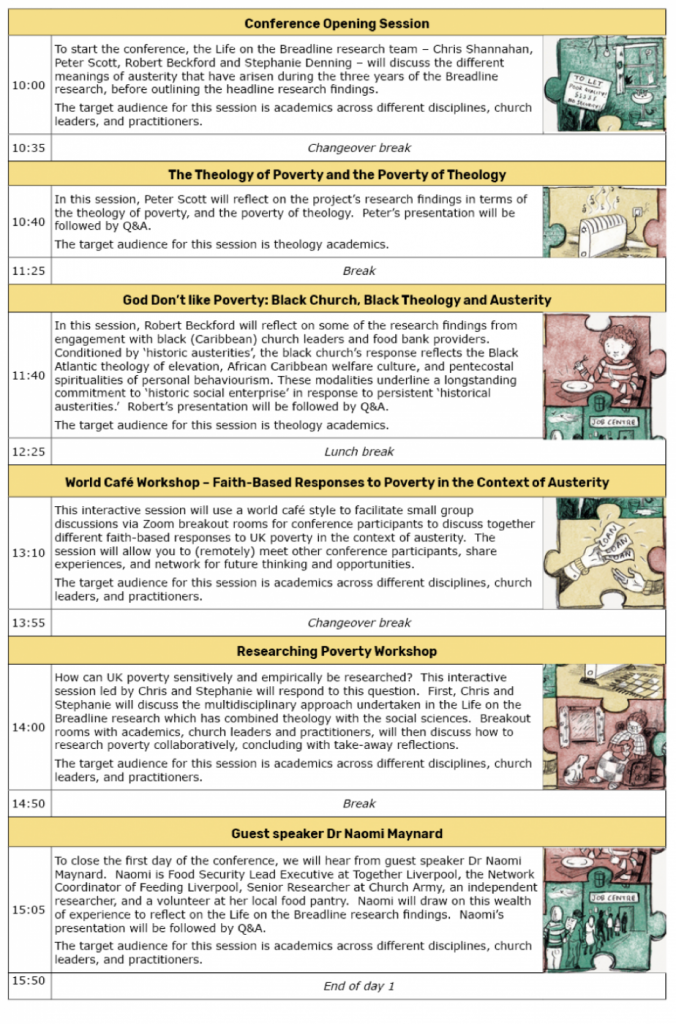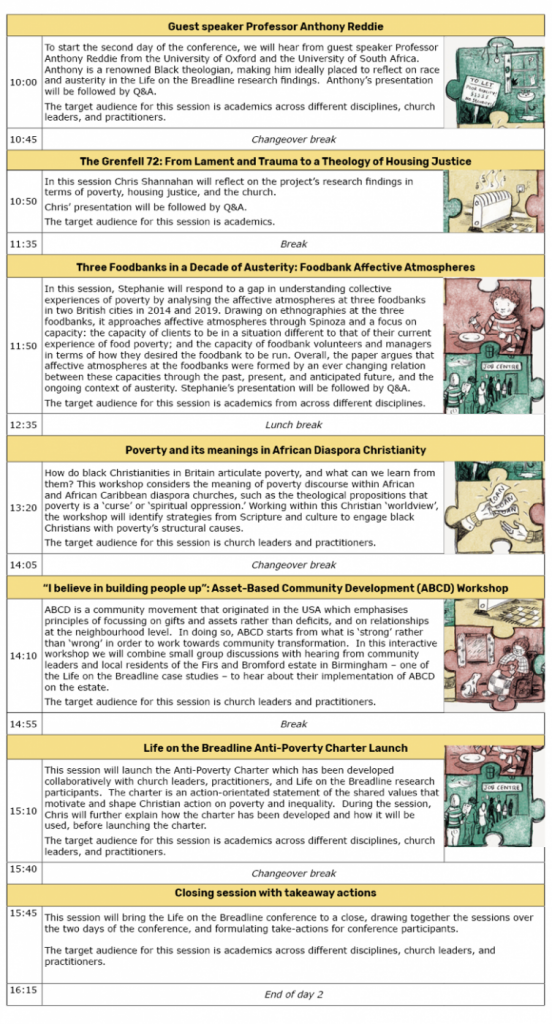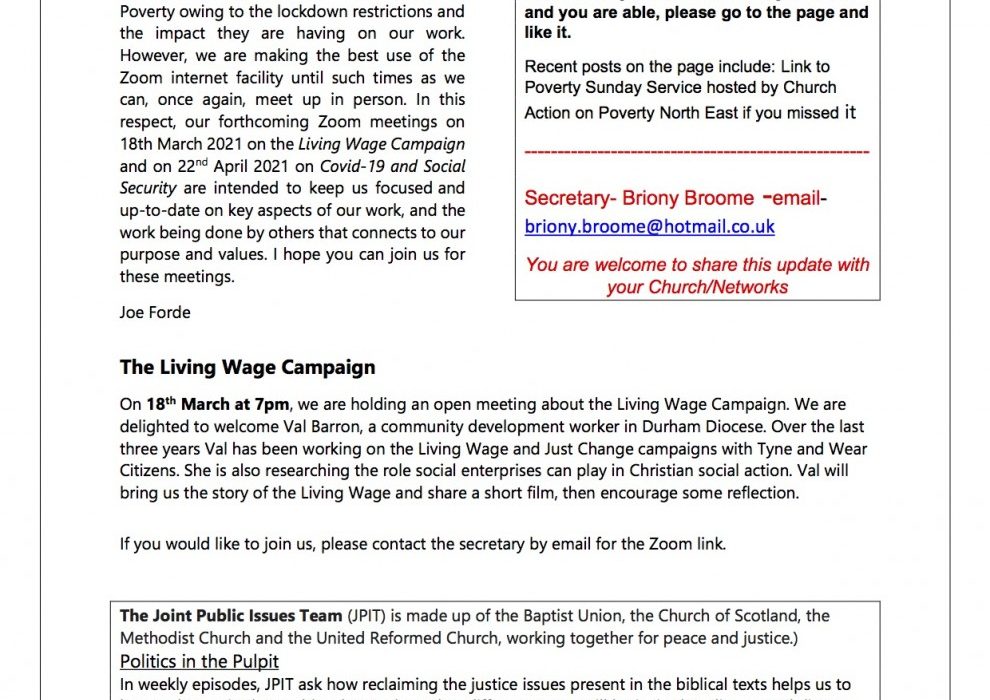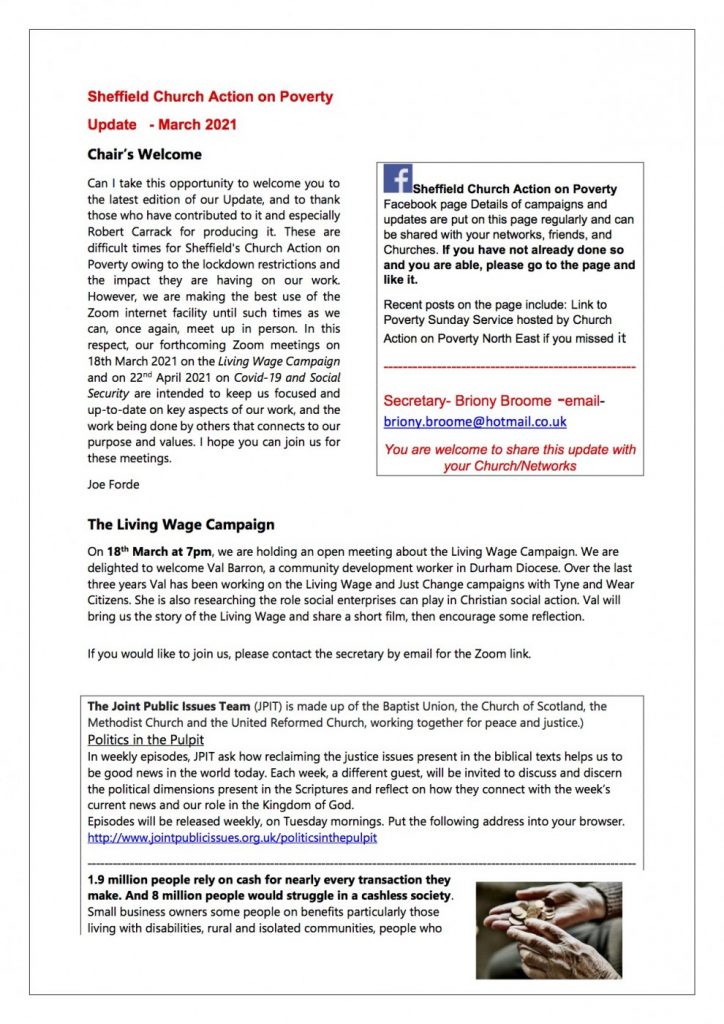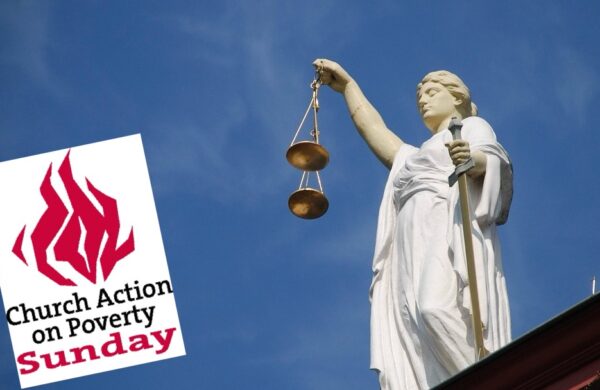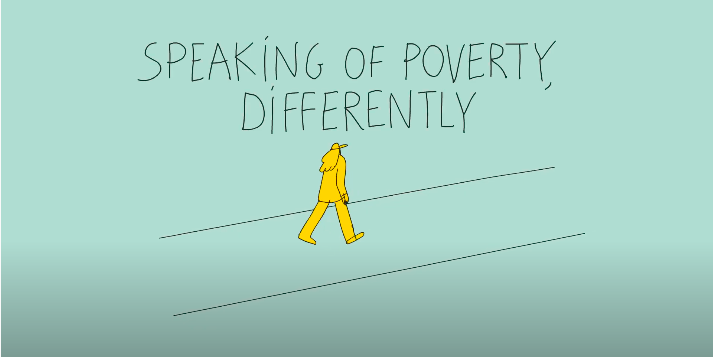Secondly, even though modern society is so different from earlier societies, left-wing Christians can point to Biblical justification for state provision. When Jesus was challenged about the payment of tax, he is reported as saying, ‘Pay Caesar what belongs to Caesar’. In Romans 13 Paul also recommends that Christians should willingly pay their taxes. The reason Paul gives for this is that the Roman state provided a system of order and justice and security, and that overarching provision was what one’s taxes were helping to fund. The modern state, of course, provides much more than basic law and order, but the principle of taxation to provide a public good is the same, and therefore tax-funded state provision for the poor can be seen as in line with Christian values.
It might even be possible to argue that Jesus feeding five thousand people at one go is an argument for the state providing a Universal Basic Income for its people.
So what will right-wing Christians say in answer to this?
Of course they will accept the Biblical and later Christian teaching about the evils of mere wealth accumulation and the requirement of charity towards the poor and vulnerable. They will, however, place greater emphasis on personal, individual responsibility: those who are at the bottom of the pile need to be encouraged and stimulated to find a way of bettering themselves, without being featherbedded by state hand-outs which may destroy the motivation to improve their lives; those who are better off should be willing to help the less fortunate, both by generosity and by community and charitable involvement.
There are some issues the right-wing Christians need to face. It is possible that their nerve of effort may be somewhat weakened by making too much of Jesus’ dictum that ‘you will always have the poor among you’ (Matthew 26.11; Mark 14.7; John 12.8; and see Deuteronomy 15.11), even if that particular text is less a universal announcement, and more a defence of a woman’s extravagant generosity towards him (‘You complainers will have plenty more opportunities to help the poor, if that’s what you’re so bothered about!’). Another factor for evangelical Christians which may detract from energy directed towards the ending of poverty is their focus on individual salvation and on a final cosmic consummation, which will be entirely in the hands of God and allow much to fall to perdition; so their efforts are on conversion of individuals, rather than on an incremental collaboration with God to bring in the kingdom on earth. (Having said that, I must add that in the UK in the last twenty or thirty years evangelical Christians have often been in the forefront of imaginative projects with and for the poorer parts of society.)
But in relation to the poor, Conservative Christians are very likely to believe that decades of welfare provision by successive governments have created a culture of dependency, in which too many of the recipients, whether simply receiving what was due to them or positively gaming the system, have got stuck in a poor quality lifestyle, in which it isn’t really worth taking a job, and so you get generation after generation of people with low aspirations and a failure to contribute positively to society. Conservative Christians may well believe that welfare systems have weakened families by encouraging sexual activity and births outside secure relationships and allowing men to escape the responsibilities of fatherhood. So recent Conservative government approaches to poverty have used the need for national austerity as a reason for making welfare benefits and other social provision less generous (which might be caricatured as a ‘stick rather than carrot’ policy to get people out of poverty!), bringing in a Universal Credit system which theoretically makes it easier to move smoothly into work from benefits, trying to create more private sector/self-employed jobs as the route out of poverty, and encouraging ‘Big Society’ voluntary and charitable initiatives to transform deprived communities.
What would justify this approach for a Conservative Christian? It is, for many people, no longer politically correct to say that the poor have somehow deserved their situation, that they have failed to make the right choices and not shown the kind of motivation and energy which could have enabled them to aspire to something better, but I think there is little doubt that a good number of those on the Right believe this. As Christians, they might support this by saying that each of us has personal responsibility before God and that those who fail to work out their salvation with fear and trembling (Philippians 2.12) will inevitably fall by the wayside. Texts such as 1 Timothy 5.8 (‘And whoever does not provide for relatives, and especially for family members, has denied the faith and is worse than an unbeliever’) or 2 Thessalonians 3.10-11 (‘Even when we were with you, we gave you this command: Anyone unwilling to work should not eat. For we hear that some of you are living in idleness, mere busybodies, not doing any work’) may well be quoted at this point.
The belief that God will bring punishment and woe on those who do not live according to his laws can be justified from many Biblical examples, and the rationale for the Prosperity Gospel movement in the United States comes from the obverse of this. Nevertheless, Jesus, when challenged about the man born blind (John 10) or the victims of Herod and the fallen tower at Siloam (Luke 13) specifically denies that their suffering was a direct result of their sin.
The doctrine of personal responsibility is applied by the Right also to those who could potentially help the poor. Jesus challenges the rich man (Mark 10.21) to give up all his wealth and inveighs against those who hang on to their accumulated riches and then die before they can make use of them (Luke 12:16–21). Margaret Thatcher on one occasion, probably prompted by a clever speechwriter, reminded her audience that the Good Samaritan would not have been able to help the poor man who had been mugged on the road without the money that he had previously made. For both rich and poor, the parable of the Talents (Matthew 25) or Pounds (Luke 19) could, for right-wing Christians, provide a justification to encourage rich or poor to make something more from whatever they have been given.
In the end, it’s likely that there will always need to be a balance held between the Left’s desire for universal state provision and the Right’s recognition of personal responsibility in using the world’s resources.
John Milbank has written: ‘It is sometimes said that we can’t stop at charity, and that all Christian reformers have wanted to proceed to enshrining principles and practices in law. One can see the serious point of this and in certain respects such an advance is crucial, and yet there is a profound question mark over that whole tradition which William Temple exemplified. It is a … tradition that tends ultimately to surrender things to the state and risks eroding both the interpersonal and the sense that people are mutually responsible for each other at the immediate social level. Anglican social thought at least has always been divided between this approach and one which stresses less state intervention, and rather more a mixture of the political and the social in the role of intermediate associations where the citizenry act more spontaneously and more for themselves in a genuinely participatory fashion.’
I wonder if it would be fair to say that two CAPs represent the Left and the Right in Christian approaches to poverty. Church Action on Poverty places an emphasis on campaigns to press the government to create the conditions to end poverty. Christians Against Poverty use church members and debt advisers to help people find their way out of debt and start a better life, often as part of the church whose members supported them. It’s clear to me that both approaches – and much more of both approaches – are needed.





